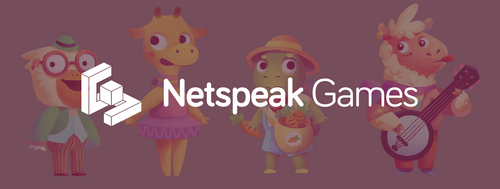Netspeak Games: Flexible Working in Practice
Krystal Gemma

Flexible Working in Practice ☀️
April has been a big month for discussions around flexible working. Whether it’s the new legislation that is coming into place (you can read more here) or it being a key theme in discussions regarding Stress Awareness Month. According to Peter Cheese, the Chief Exec of the Chartered Institute of Personnel and Development (CIPD), flexible working conversations are more important now more than ever - for many reasons such as an aging workforce, cost of living and a shift in how people parent.
Before we go any further, you might be thinking ‘what does flexible working mean exactly?’ Well, to put it simply, it’s a way of working that suits the employee’s wants and needs. It’s about how a person can maximise their value add at a company, and this can be done through where they work (e.g. remotely, from a coffee shop, hot-desking) and how they work (e.g. part-time, job sharing, condensed working hours).
Why offer Flexible Working? ⌛🏠
At Netspeak Games, we believe flexible working leads to direct business benefits which includes a happier, more productive bunch of people. Research shows that companies who offer flexible working options are more successful in attracting and retaining employees. In fact, a recent survey found that employees rank flexible working as the most desirable benefit, even before job security and pay. Flexible working also creates a more diverse workforce as it can open up more opportunities for people to get into and stay in work, including those who have caring responsibilities, disabilities, health conditions, or just choose to live life a certain way. As well as the business side, flexible working offers so many benefits to the employee (which I probably don’t need to tell you about, but I’ll list a few just in case!); working from a place they feel most comfortable and most productive, less time and cost commuting, more time with family and a better overall work/life balance.
How we do it 💼💻📈
Location: We are a fully remote studio, which means we can hire the top talent across the UK and beyond, and in turn, employees get the benefits of working from home, or from a location of their choosing. We work hard on various employee engagement initiatives to make sure people feel inspired and connected whilst physically apart. We also aim to get face to face socials in once or twice a year, just so we can see who is officially the tallest in the company!
Flexi Time: We have staggered start/finish times which helps if parents want to do the school drop-off, or just if someone feels particularly more productive earlier in the morning or later in the day. People can also take extended lunches, or take some time for self care during the day, and make up the time elsewhere. We operate within the core hours of 10-4pm so meetings don’t take place outside of these times.
Part-time working: We have a few members of staff who work part-time for a variety of reasons. Their working patterns are taken into account when planning sprints and milestones, so that employees aren’t overworked and trying to fit 5 days of work into 4, for example. We also make sure we have our weekly All-Hands company meeting on a day when everyone is in, so that nobody misses out.
Top Tips - the 4 T’s! (or 6 if you include Top Tips 😋 )
Transparency: We aim to cultivate a culture of transparency and psychological safety so that people feel comfortable saying they’re off to a gym class, or need to take the dog for a walk, and they’ll make the time up later. Regular communication is key; letting each other know when we’re not available and where we’re at with tasks is key, especially when working remotely.
Trust: This is something that is born out of transparency, relationship building and good communication. Managers need to step away from micromanaging and trust that the employee is going to get the work done on time and to the standard set out (it’s another conversation if this doesn’t happen), but trust, in the first instance.
Tech: You need the right tech in place to make sure you can connect and collaborate in the most efficient way. There are so many options out there these days; Slack, Zoom, Teams, Hangouts, GatherTown, Discord and so much more! Look into the one that best fits your culture, ways of working and size of your organisation.
Training: It’s important that with any changes in a company, managers are given the relevant training. We no longer operate in the traditional ‘I see you sat at your desk so I assume you must be working’ - managing people who work flexibly requires a different approach. When setting out tasks for the team, it's the manager’s job to say what needs to be done and by when, but flexible working means it’s down to the individual to choose how it’s achieved.
You can probably tell by now, we are advocates for flexible working! In summary, we firmly believe that employees perform at their best when they have autonomy over where and when they work. We’d love to hear about what flexible working arrangements you offer and further tips on making it a success!

